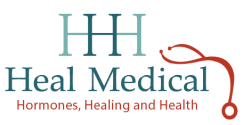Reposting Craig Weatherby’s article from the Vital Choices Newsletter in its entirety – let’s look at the positive reasons to enjoy the sunshine!
Vitamin D Lack Linked to Toughest Breast Tumors
Low vitamin D levels in women with breast cancer are linked to more aggressive tumors and poorer prognosis
by Craig Weatherby
 Low blood levels of vitamin D may promote riskier breast tumors and worsen women’s chances of survival, judging by a new study.
Low blood levels of vitamin D may promote riskier breast tumors and worsen women’s chances of survival, judging by a new study.Prior research has looked for and found links between low vitamin D levels and higher risk of developing breast cancer … as well as reduced survival rates among women lacking adequate intake or blood levels.
(To learn about the debate over intake and blood levels, see our sidebar, “Vitamin D RDAs still deemed inadequate”.)
This epidemiological study – by a team at the University of Rochester Medical Center (URMC) – is one of the first to look for links between vitamin D blood levels and the risk for aggressive tumors in women already diagnosed with breast cancer.
|
Vitamin D RDAs still deemed inadequate … after being raised
|
The URMC study, reported this week at the American Society of Breast Surgeons, associates low, “sub-optimal” vitamin D levels with poor scores on every major biological marker proven to help predict a breast cancer patient’s prognosis.
“The magnitude of the findings was quite surprising,” said lead researcher Luke J. Peppone, Ph.D., M.P.H. “Based on these results, doctors should strongly consider monitoring vitamin D levels among breast cancer patients and correcting them as needed.” (URMC 2011)
Analysis links low vitamin D levels to risk for aggressive breast cancer
The study’s authors examined various key factors related to breast cancer prognosis among 155 women who underwent surgery for breast cancer between January 2009 and September 2010.
They also obtained blood samples for all the patients within the one-year period before and after surgery, to get accurate vitamin D levels.
Meanwhile, the researchers collected relevant breast cancer data on each patient including age, race, menopause status, stage of cancer at diagnosis, estrogen and progesterone status, HER2 expression, gene expression, and Oncotype Dx score.
Oncotype Dx is a newer diagnostic test for early-stage breast cancer that looks at a group of 21 genes within a woman’s tumor sample and issues a score between 0 and 100 that predicts the likelihood of a recurrence. A higher risk of recurrence is usually reflected in scores greater than 30.
Finally, the women were separated into two groups, based on whether their vitamin D levels were deemed “optimal” or “sub-optimal” – that is, greater or less than 32 ng/ml (nanograms per milliliter) – a demarcation point that can also be expressed as greater or less than 80 nmol/L (nanomoles per liter).
The URMC team’s statistical analysis showed that cancers known to be more aggressive – such as triple-negative tumors – correlated with low vitamin D levels.
(The term “triple-negative” refers to breast tumors that do not depend on estrogen, progesterone, or HER2 human epidermal growth factor receptor 2, and cannot bet reated with the drugs used for those hormone-dependent forms. These cancers don’t usually respond to treatments for hormone-dependent tumors. But some chemotherapy drugs can yield positive outcomes, and drugs now in clinical trials show promise.)
Lower vitamin D levels were also strongly linked to increasing (i.e., riskier) Oncotype scores.
Finally, patients with invasive cancer – versus women with in-situ or stage 0 disease – were also more likely to have sub-optimal vitamin D levels.
The authors arrived at two key conclusions, which led them to recommend vitamin D blood tests for cancer patients, and vitamin D injections or supplements as needed:
-
“Breast cancer patients with suboptimal vitamin D levels were more likely to have tumors with more aggressive tumor profiles and worse prognostic markers, lending support to previous research that found decreased breast cancer survival among vitamin D deficient individuals.”
-
“In addition, this study found that suboptimal vitamin D levels were not only associated with poor prognostic markers of survival (ER- and triple negative tumors) but also increased risk of recurrence (Oncotype scores).”
It’s worth noting that the premenopausal and black women in this study were more likely to have sub-optimal vitamin D levels, compared to postmenopausal white women.
Sources
-
Rickles A, Peppone L, Huston A, Piazza K, Skinner K. Poster Presentation #1701 – Serum 25-Hydroxyvitamin D and Prognostic Tumor Characteristics in Breast Cancer Patients. Scientific Session Abstracts Official Proceedings Volume 18. The American Society of Breast Surgeons 12th Annual Meeting, April 27 – May 1, 2011, Washington, DC.
-
University of Rochester Medical Center (URMC). Aggressive Breast Tumors Linked to Vitamin D Deficiency. April 29, 2011.

